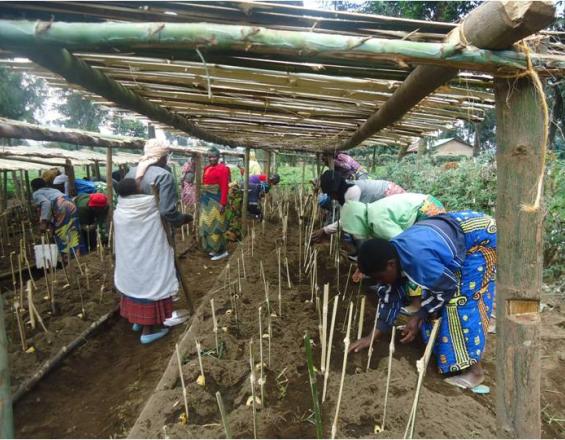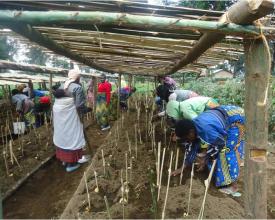Promover un enfoque de género en la conservación de las áreas protegidas de Ruanda

Para garantizar la participación de las mujeres en la conservación, en Ruanda se está utilizando un enfoque basado en el género. El gobierno ruandés ha empezado a integrar la perspectiva de género en la gestión de las áreas protegidas y el uso de los recursos naturales. ARECO es miembro de la UICN y apoya iniciativas comunitarias centradas en la participación de las mujeres en la conservación, y presiona para que se integre la participación específica de las mujeres en las políticas nacionales.
Contexto
Défis à relever
Ubicación
Impactos
- En Ruanda, a pesar de que el 70% de las mujeres del país participan en la agricultura y otros ámbitos relacionados con la gestión de los recursos naturales, existen grandes desigualdades en cuanto a los beneficios que obtienen las mujeres de los recursos naturales. Sin embargo, desde la plena aplicación de este plan, ha aumentado en un 65% el número de mujeres que participan en estos proyectos. - Un ejemplo del éxito del proyecto puede observarse en el Parque Nacional de los Volcanes, donde ARECO facilita actualmente 12 cooperativas basadas en mujeres, y el estatus legal de las cooperativas registradas permite a sus miembros el derecho a acceder a financiación, así como a beneficiarse de otros ingresos como el turismo y las actividades de conservación.
